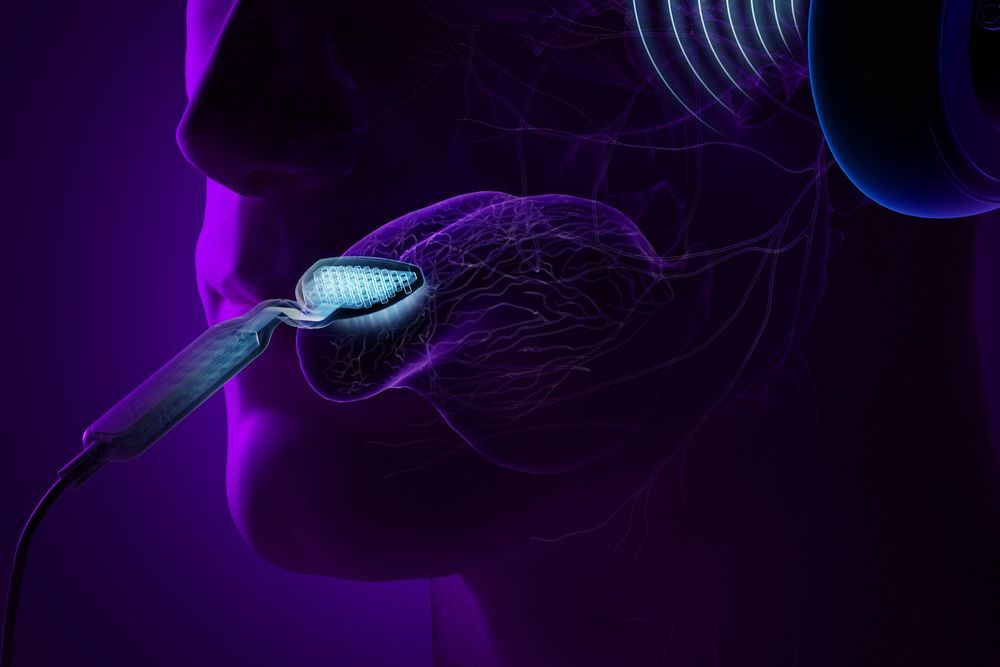Page 6105
Oct 16, 2020
A patient has died after ransomware hackers hit a German hospital
Posted by Quinn Sena in categories: biotech/medical, cybercrime/malcode
For the first time ever, a patient’s death has been linked directly to a cyberattack. Police have launched a “negligent homicide” investigation after ransomware disrupted emergency care at Düsseldorf University Hospital in Germany.
The victim: Prosecutors in Cologne say a female patient from Düsseldorf was scheduled to undergo critical care at the hospital when the September 9 attack disabled systems. When Düsseldorf could no longer provide care, she was transferred 19 miles (30 kilometers) away to another hospital. The hackers could be held responsible by German police, the BBC reports.
A tragic first: “If confirmed, this tragedy would be the first known case of a death directly linked to a cyberattack,” Ciaran Martin, formerly the chief executive of the UK’s National Cyber Security Centre, said in a speech at the Royal United Services Institute. “Although the purpose of ransomware is to make money, it stops systems working. So if you attack a hospital, then things like this are likely to happen. There were a few near misses across Europe earlier in the year, and this looks, sadly, like the worst might have come to pass.”
Oct 16, 2020
Microsoft attempts takedown of global criminal botnet
Posted by Quinn Sena in categories: cybercrime/malcode, law
Microsoft announced legal action Monday seeking to disrupt a major cybercrime digital network that uses more than 1 million zombie computers to loot bank accounts and spread ransomware, which experts consider a major threat to the U.S. presidential election.
The operation to knock offline command-and-control servers for a global botnet that uses an infrastructure known as Trickbot to infect computers with malware was initiated with an order that Microsoft obtained in Virginia federal court on Oct. 6. Microsoft argued that the crime network is abusing its trademark.
“It is very hard to tell how effective it will be but we are confident it will have a very long-lasting effect,” said Jean-Ian Boutin, head of threat research at ESET, one of several cybersecurity firms that partnered with Microsoft to map the command-and-control servers. “We’re sure that they are going to notice and it will be hard for them to get back to the state that the botnet was in.”
Oct 16, 2020
U.S. Cyber Command Says it Nuked Trickbot, but Microsoft and Chums Claim Credit
Posted by Quinn Sena in categories: cybercrime/malcode, law

In the dog days of last week, a shadowy group of secret sources in U.S. Cyber Command whispered to reporters that they’d disrupted a huge, ransomware-spewing botnet. Trickbot, closely related to Emotet and Ryuk, is believed to be managed by Russian criminals.
But today, Microsoft and friends are saying the disruption was actually down to them—awks. The consortium of industry players has developed a new legal mechanism to remove the botnet’s servers from the net and they say it’s working.
Continue reading “U.S. Cyber Command Says it Nuked Trickbot, but Microsoft and Chums Claim Credit” »
Oct 16, 2020
‘I never saw stars before’: Gene therapy brings back 8-year-old Canadian boy’s sight
Posted by Quinn Sena in categories: biotech/medical, genetics
For the first time, a targeted gene replacement therapy has been approved in Canada, bringing hope to thousands of people struggling with a genetic condition in which their sight slowly degrades.
Oct 16, 2020
“Landmark” study brings perfectly efficient electricity closer to reality
Posted by Quinn Sena in category: materials
Researchers have designed a material that can act as a superconductor in a room heated to close to 60 degrees Fahrenheit — the warmest temperature yet.
Oct 16, 2020
Rare horse cloned from cells taken from a stallion in 1980
Posted by Quinn Sena in category: biotech/medical
Little Kurt looks like any other baby horse as he frolics playfully in his pen. He isn’t afraid to kick or head-butt an intruder who gets in his way and, when he’s hungry, dashes over to his mother for milk.
But 2-month-old Kurt differs from every other baby horse of his kind in one distinct way: He’s a clone.
The rare, endangered Przewalski’s horse was created from cells taken from a stallion that had sat frozen at the San Diego Zoo for 40 years before they were fused with an egg from a domestic horse.
Oct 16, 2020
Britain Banks On Tempest Future Fighter Program As Its Next Great Hope In Combat Airpower
Posted by Raphael Ramos in category: military
An article on Britain’s own Future Fighter program.
Britain has new data to help make crucial decisions as to its pathway to future air dominance and a healthy indigenous aerospace and defense sector.
Oct 16, 2020
High fructose intake may drive aggressive behaviors, ADHD, bipolar
Posted by Raphael Ramos in categories: biotech/medical, evolution, food, genetics, neuroscience
The research, out today from the University of Colorado Anschutz Medical Campus and published in * Evolution and Human Behavior*, presents a hypothesis supporting a role for fructose, a component of sugar and high fructose corn syrup, and uric acid (a fructose metabolite), in increasing the risk for these behavioral disorders.
Johnson outlines research that shows a foraging response stimulates risk taking, impulsivity, novelty seeking, rapid decision making, and aggressiveness to aid the securing of food as a survival response. Overactivation of this process from excess sugar intake may cause impulsive behavior that could range from ADHD, to bipolar disorder or even aggression.” “Johnson notes, “We do not blame aggressive behavior on sugar, but rather note that it may be one contributor.”” “The identification of fructose as a risk factor does not negate the importance of genetic, familial, physical, emotional and environmental factors that shape mental health,” he adds.
Huh, want to know more.
Continue reading “High fructose intake may drive aggressive behaviors, ADHD, bipolar” »
Oct 16, 2020
New research could help millions who suffer from ‘ringing in the ears’
Posted by Jeff Myers in category: biotech/medical

In the largest clinical trial of its kind, researchers show that combining sound and electrical stimulation of the tongue can significantly reduce tinnitus, commonly described as “ringing in the ears.” They also found that therapeutic effects can be sustained for up to 12 months post-treatment.
The findings could potentially help millions of people since tinnitus affects about 10 to 15 percent of the population worldwide. The study was conducted by researchers from the University of Minnesota, Trinity College, St. James’s Hospital, University of Regensburg, University of Nottingham, and Irish medical device company Neuromod Devices Limited.
Continue reading “New research could help millions who suffer from ‘ringing in the ears’” »
















